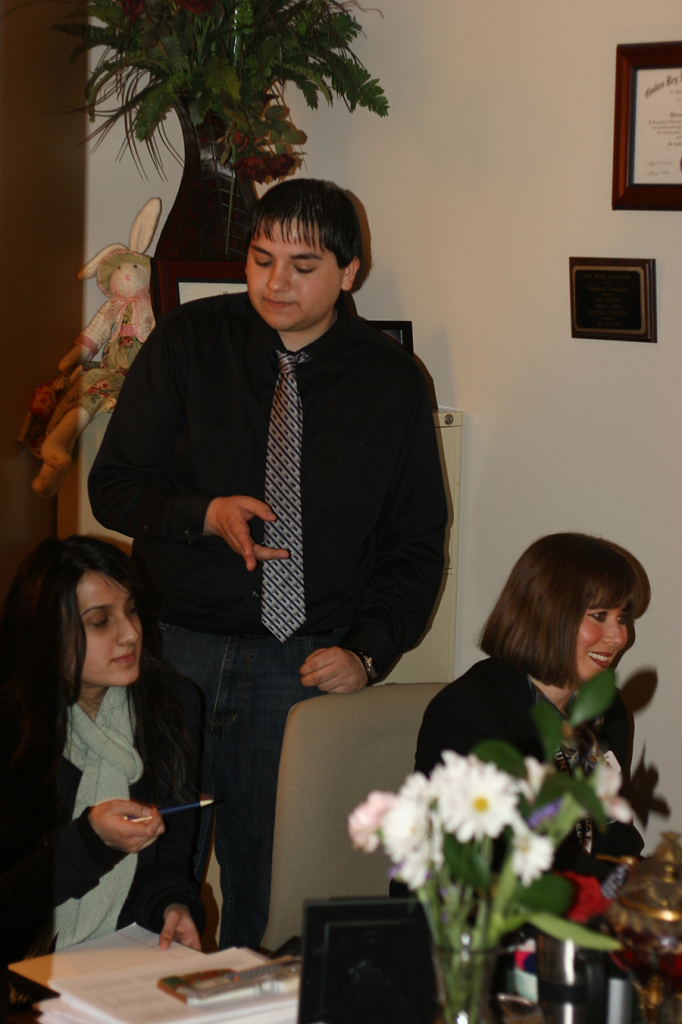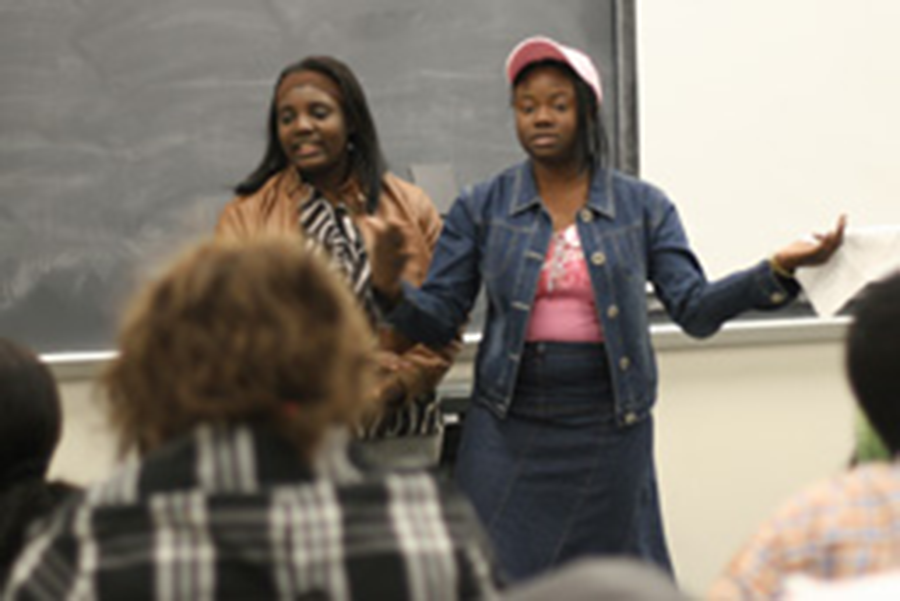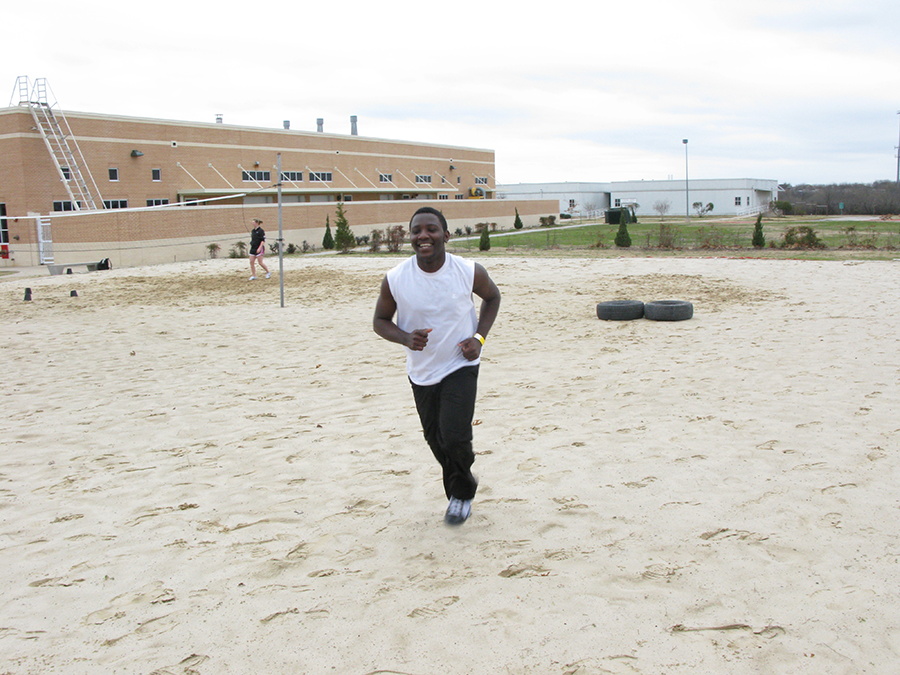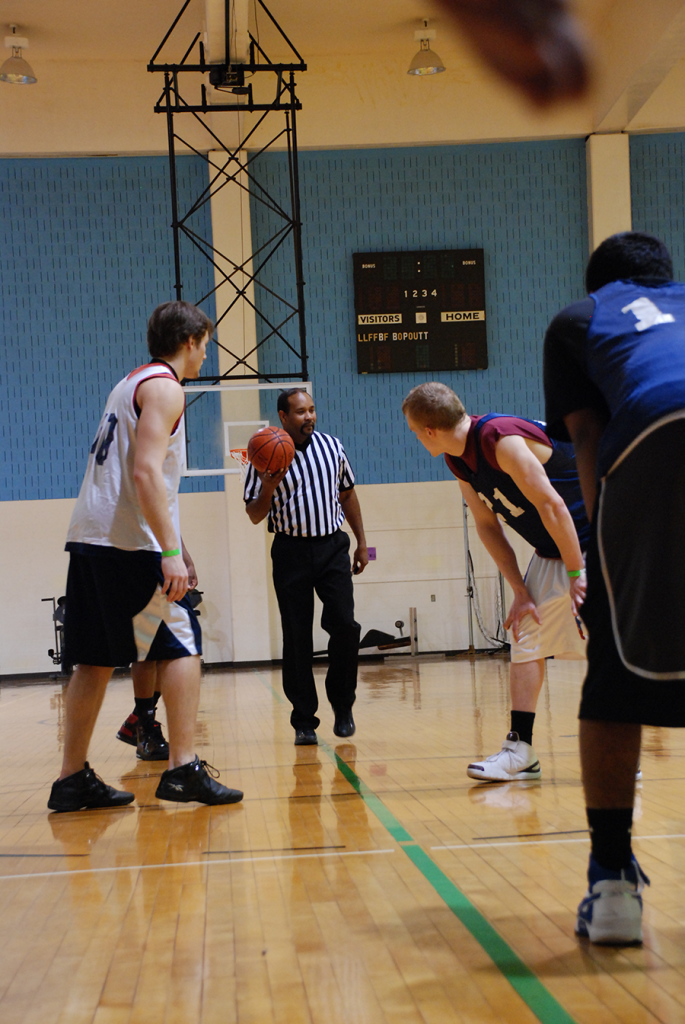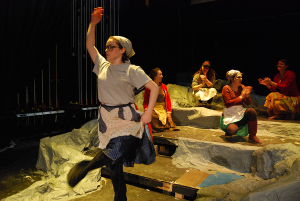
Mackenzie Ashton/The Collegian
By Bethany Peterson/nw news editor
With a grown man’s perspective, Michael tells childhood memories of his mother and four aunts before the Lughnasa Festival including the happy and heartbreaking moments of life.
The play Dancing at Lughnasa will be performed at 7:30 p.m. Wednesday-Saturday with a 2 p.m. matinee Sunday in the NW Theater. Directed by Yvonne Duque, admission is free for TCC students and faculty, $3 for non-TCC students and senior citizens and $6 for adults.
“It’s a memory play,” Duque said, “about five sisters who missed the boat.”
Michael, an illegitimate child and narrator of the play, lives with his mother and four unmarried aunts and his Uncle Jack.
Set in the months before the Celtic festival Lughnasa, the play dramatizes Michael’s memories as he meets his father for the first time and the different sides his aunts show during the string of events.
Toward the end of the play, Michael informs the audience of the sad ending of each of the siblings’ lives.
The play relies on the characters’ relationships with each other, rather than the plot and the audience’s relationship with the characters to move the play forward.
And being set in 1930s Ireland was also a bit of a challenge for the actors.
“You cannot go back in time,” said Georgia Marshelle Phillips, who plays Maggie the energetic sister. “It’s hard getting used to where they are living.”
Bridget Cooney, who plays the quiet sister Agnes, said the female cast members wear skirts and aprons at rehearsals so they learn how to move in them.
Cooney had a little more understanding for what 1936 Ireland was like than her fellow castmates.
“My dad’s side of the family is all Irish Catholic,” Cooney said.
Many of the Irish religious props used on stage belong to Cooney’s family, and many of the Catholic gestures, like people crossing themselves, are a real part of her life.
Making up for this ease, Cooney’s character is a little more difficult to play.
“I am the quiet one who knits in the corner,” she said. “It is hard to make my character known when she is always hiding behind her knitting.”
But the other family members do count on her, and she is special friends with the fourth youngest sister Rose, played by Lauren Devoll, who said Rose has a special relationship to all her sisters because she is “simple.” Not mentally disabled, just a little too childlike in her view of the world.
“[The sisters] sincerely worry about Rose,” Devoll said.
Kate is the oldest of the five sisters and keeps a sharp eye on the family. Samantha Bianchini, a TCC alumna agreed to come back to play Kate, a role that TCC staff thought would take a more mature quality.
“[Kate] is the adopted mother figure,” Bianchini said. “She loves her sisters dearly, but she wears the pants.”
And Kate must really be on her guard where Jack and Rose are concerned.
Jack, played by John Humphrey, was a Catholic missionary priest in an African leper colony for many years. He has recently returned home to recover from malaria, but it becomes more apparent that he has lost his Catholic beliefs.
“Kate is hoping I’ll start saying Mass again,” Humphrey said.
With an illegitimate child under the roof, a missionary brother has counteracted people’s negative view of the family, kept them respectable and Kate in her job as schoolteacher.
But with Jack showing a deep respect and even love for the “pagan” religions of Africa, the family threads feel the strain.
Michael’s father, Gerry, is also in and out of the picture, creating more tension. His appearance and promises bring hope to Michael and his mother Chris, played by Christine Riley, but his inevitable leaving and broken promises send Chris into depression.
“[Chris] loves [Gerry], but it never really works out,” Riley said.
Riley plays a two-sided character. On one hand, she dearly loves her son, but she doesn’t really want the responsibility of raising Michael.
Michael is a favorite of all the aunts and rather spoiled.
Telling the story in memories as he does, Michael gives both the child’s simple view of important events that eventually lead to the family disintegration and a deeper perspective of a grown man.
“It doesn’t matter when or where you are. Life is life,” said Daniel Moore, who plays the illegitimate son. “It does not matter what they think. Life is going to do what it is going to do.”
Trying to convey an idea while remembering where to go and trying to speak in an unnatural way is difficult, and he has to pick two to do well, Moore said.
To be convincing, all the actors spent hours with a dialect coach getting their Irish dialects down.
The set includes realistic furniture, cast-iron cooking pots and a turf-burning stove.
The plot puts focus on the characters themselves. The characters display different sides of themselves throughout the scenes, from reserved and respectable to a lively and chaotic dance sequence.
“The audience is going to relate to the characters,” Phillips said. “The audience is going to have fun relating the characters to people they know.”
The special draw to the play may be as simple as the humanity of the characters and the things that happen to them.
“These are real women,” Bianchini said.

























